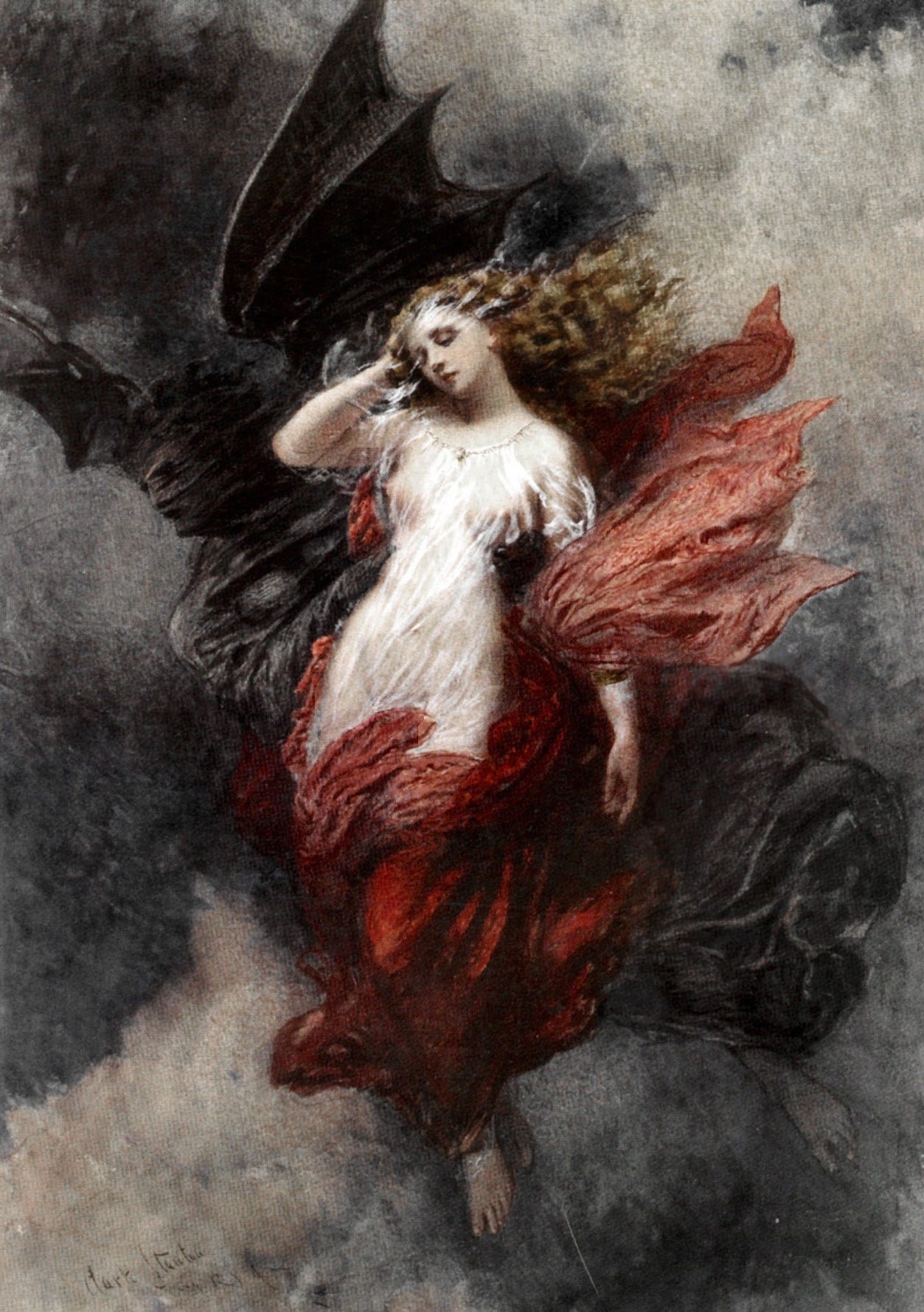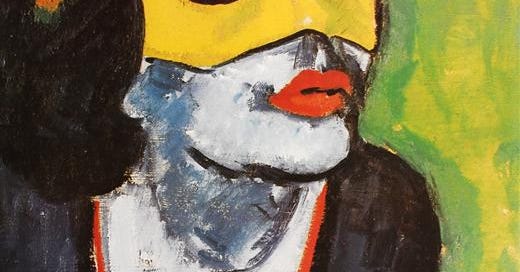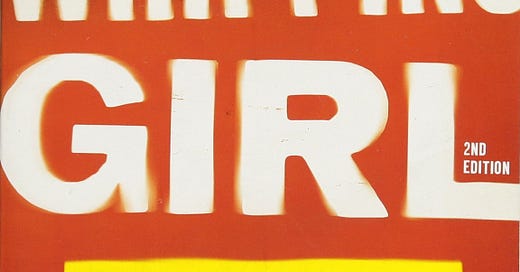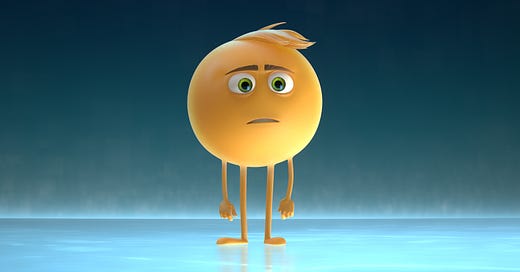
Millennial women weren't bottle-fed gender identity bullshit. How did we fall for it?
Our bodies weren't meant to mean anything
It always stuns me—when I go to campus or lurk around the edges of parties—just how many young women have cut their breasts off over the past few years. It's been so normalized, so fast. (If you’re having trouble finding this disturbing, imagine a trend where young people sacrificed an eye or a limb to an identity fad… you’d wonder what on earth was going on, wouldn’t you?)
And I’m not just talking about the cohort of very young women most severely affected by new beliefs about gender and identity. I’m talking about women in their late 20s into their 30s, too.
Women my age weren't bottle-fed this bullshit. How did we fall for it?
If this belief system is pervasive in your peer group, as it is for millennials (not to mention Gen Z), you basically have two options:
Reject the belief system and become a social pariah
Accept the belief system and either suffer the insult or upgrade your own gender identity
There used to be a third option, but it’s disappearing fast: privately reject the belief system and avoid the subject in public. This is nearly impossible when you’re constantly prompted to give your pronouns and when every time you try to say anything about women or create anything for women, someone demands to know if your definition of woman is ‘inclusive’ or not.
If you buy into this belief system about 'cisgender' and 'transgender,' no woman with any self-respect is going to maintain a 'cisgender' identity for very long. Even if she starts out as the most self-effacing 'cis' ally, she’s not going to be able to continue to demean herself like that. Eventually, she’ll balk at the sexism even as she buys into the sexism. She's inevitably going to come to a deep, personal revelation about her gender identity. She’ll damn other women and exempt herself.
Look, if I genuinely believed Andrea Long Chu was the authority on what women are (expectant asshole/blank blank eyes), I wouldn't identify as a woman either. You can't take porn-addled headcases like Long Chu half-seriously and continue to identify as a woman. (So, it turns out women are not as masochistic as men who identify as women think, after all. Some women are prepared to take these men at their word about what women are but ultimately they can't accept the insult themselves. They'll nope out.)
But why couldn’t Generation Shout Your Abortion! (I’ve got qualms about that one)/Fuck the Patriarchy (some of my peers took this one quite literally)/The Future is Female reject this load of absolute bollocks wholesale? Why couldn’t we muster a resounding “fuck off”?
In a way, we fell into a gap. We missed out on Gen-X's looser gender roles. We were told feminism's work was over and that older women had nothing of value to say to us. We got girl power everything. But it was empty, a heavily painted mask with nothing behind it. Instead of feminism, we got ‘identity’ and ‘choice’ and ‘girl power.’
The constant bubble-gum pink invocations of ‘girl power’ felt more like negging: "Girls can do math! Girls can rock at science! Girls can code!" Whoever suggested we couldn't? It wasn't lost on me that nobody celebrated 'boy power,' that no one reassured boys—before they'd encountered a single hurdle or expressed the slightest hesitation!—that they could do math or science or anything else.
Persist in your independence, your serious-mindedness, your love of math and science, and you get treated as an exceptional girl. An honorary boy, in other words. Adults will praise you for being "not like other girls." By which they mean: for not cutting off your own head. (Maybe we hadn’t come quite as far as we’d been told.)
"Not like other girls" becomes the highest possible compliment, a mark of distinction, worn proudly. Until puberty arrives and your body turns on you, making a mockery of your pretensions.
Then it turns out you're just like other girls.
And you're not prepared for it. Any solidarity between girls had been dissolved in acid. We weren't meant to face any hurdles as girls. Our bodies weren't meant to mean anything. For our whole lives, our bodies could be managed or subdued—with birth control, antidepressants, stimulants.
Is that part of it? I wonder. Are we still seeking that highest form of praise: not like other girls? Do we still refuse to become our mothers, with their compromises, even as we have children of our own and realize the bargain hasn’t changed? Is the female body still just a problem to be fixed, not our only way of being in the world?
We were the first to grow up online and the first to spill onto social media as teens. We were the first to grow up—many of us—drugged to manage every sort of inconvenience our bodies or psyches might present: our periods, our moods, emotions we might have been better off feeling.
It's hard to reconcile with a body you so often live outside of: whether online or through someone else's gaze. So, many of us experienced both an ideological ('you get to pick and choose') and an actual (variously medicated) divide from our female embodiment. With consequences.
We were raised on a fresh set of mixed messages about girlhood and womanhood. Unlike our younger sisters, we weren't indoctrinated into the belief that growing up female is a choice. But everything else was reduced to a personal choice, stripped of both consequence and analysis: choose to self-objectify, it's empowering! Choose to be abused in bed, it's liberating! Choose your brand!
Everything to do with being female was presented as a choice—and not just any choice but a strange, weightless choice: you do you.
Ergo: being female doesn't mean anything you don't want it to mean and no choices are better or worse than any other choices (and who do you think you are, judging other women's choices?).
It turns out this is a lonely and confusing way to grow up. It's hard to make sense of what your 'choices' cost you, when all choices are equally valid and any sense of what would make a choice good or bad for you has been hollowed out. When we suffered for our choices—because those choices weren’t quite so weightless after all—we had no recourse, no framework for making sense of what we were up against.
Gender ideology was the first analysis—however toxic and bankrupt—many women my age touched. No wonder so many held on for dear life.
















I was 16 in the late nineties, and at uni. in the early 1990s. A tomboy as a child, I can honestly say that I never encountered any issues with feeling that I was somehow lesser. It didn't even occur to me or my female friends that we were (and of course I'm not saying there weren't times where I wasn't the subject of unwanted male aggression or misogyny).
Our role models were women being themselves and doing their thing. And compared to our parents, born in the forties, we felt that earlier women's struggles had borne fruit for us. We were happy to disrupt gender roles in ways parents didn't always understand. Porn was still in the form of grubby magazines, not that of a hand-held screen used by kids. It was an exciting time to emerge into adulthood.
These notions of woman as glassy-eyed, collagen-pumped vessels put on earth for male satisfaction come from the mass pornification of society. You only have to walk past a secondary school to see how many girls now view themselves. Thick makeup. Fake eyebrows. Massive draw-on lips. Fake tans. Identikit hair. Identikit selfies. If someone had told me when I was 18 that in the future young women would actively seek to look like plastic porn stars and those who didn't would be told to have a double mastectomy and say they were men, I'd never, ever have believed them.
The 90s did have looser gender roles and attitudes toward psychedelics, certainly in the party scene. For me, the latter helped me eschew stricter gender roles, which were still heavily marketed to us, like undernourished model’s espousing heroine chic body types. And professional porn flourished with overly plastic and collagen injected and mutilated women and men, to some extent. Women who chose not to eschew a gender role were still expected to conform to bizarre fashion and extreme weight loss and plastic surgery trends. Sex in the city was an ad for this that we paid to watch.
Plastic surgery lacked basic safeguards for kids as a field long before trans ideology took hold. Kids have been allowed to get breast implants and other voluntary cosmetic procedures, below the age of 18, with parental consent long before transitioning became a fad.
However, that was constrained by people with the disposable income required to afford paying out of pocket. Making transitioning a human right or medically necessary to assuage mental illness, or anguish as its promoted, opens the door for government institutions (eg prisons) and insurance companies to foot the bill for these procedures. Until recently that font of potential funds was a vast untapped market, for ‘medicine’.